Building Schema
After working through an extensive Drama Unit using the tale of a Chinese immigrant railway worker, we continued to front-load students' schema through the use of centers: A plastic bin for a each of several different Canadian people groups contained picture books, timelines, info-graphics, photos and a padlet of curated online resources.
Interestingly, they none-the-less engaged with the material quite willingly, and were particularly interested in learning more about what they perceived as injustices ("Why don't professional women hockey players in Canada make anywhere near as much as male hockey players, Ms. Teschow?" and "How come the Chinese people had to pay so much money [head tax] to stay in Canada when they couldn't even afford it?!", where some of the questions they had as they read.)
Integration of Current Events
Taking on a meaty question like this easily facilitated the integration of current events: Almost daily something would arise in the media where I or one of the students would make a connection to "what we're all about" in Canada.
The Syrian Refugee Crisis -- and the election! -- were unfolding in the midst of our inquiry, and students eagerly shared their opinions about whether and how to invite these desperate members of our global human family to our country. With the support of my instructional coach, we engaged in a little Syrian "math", and even as we have moved into the final stages of our inquiry, some students are still posting regular updates on Canada's response in our virtual classroom on Edmodo.
After several weeks of reading and full class discussion about Canada's identity as promoters of justice (or perpetrators of injustice) with different people groups in Canada, it was time to take on a more focused of their own.
We visited my colleague's "Inquiry fair", at which her top students presented both their question and findings, as well as their insights into challenges and opportunities throughout the inquiry process. My students appreciated the "hot tips" provided by their counterparts in the other class, and many took copious notes to guide their own research journey.
Then, it was time for them to launch their individual inquiries.
A Differentiated Approach
Students chose both an inquiry question and a tool with which to communicate their learning and thinking. From Racism to Marriage Equality to Islamophobia and more about the Residential School System in Canada, students chose to delve into "Canada: Fair and Just?" topics of interest in greater depth.
They shared their emerging understanding via prezis, powerpoints, info-graphic-like posters, and good old-fashioned essays.
One theme that arose as students were working through their individual inquiries was the need to respect difference. The backgrounds of the students in my class this year comprise an interesting mix of cultural religion, agnosticism and fundamentalism from two of the three monotheistic faiths, and the cultural "backpacks" the students bring to school can in some settings spark challenging interactions that are tough to navigate on both an emotional and an intellectual level. And yet, the overwhelming majority of my students expressed a strong need to be respectful of different worldviews and perspectives, regardless of their background.
I believe this speaks to the value (in terms of changing mindsets) of this sort of inquiry model in social studies, as well as to the clear commitment of families in supporting the Canadian value of inclusion. I imagine that many interesting conversations must have happened in the homes of my students over the past several months, and it is evident that many parents sifted carefully through their own biases and perspectives and prioritized the life lessons about respect with their children, highlighting parts of their home culture or faiths that support this respect and inclusion.
A topic of great interest to the class what the one surrounding the rights of LGBTQ Canadians. For many students, this inquiry was the first time a teacher had openly used words like "gay", "lesbian" or "trans", or that they had heard these words in a context of inclusion, and students were intrigued. Some of my students also come from backgrounds outside of Canada where to be openly LGBTQ is synonymous with being a criminal, so many had never seen someone they knew to be LGBTQ before.
I will never forget Ramo's epiphany -- having researched the fact that roughly 10% of the world's population identifies as LGBTQ -- that there must be some gay or trans people right here at our school.
"Where are they?" this student demanded to know, "Can we meet them?" (missing the incredulous looks of his more on-the-ball peers, who had long-ago clued in to a fact that he clearly was still blissfully ignorant of, namely, that he was in fact sharing a classroom on a daily basis with at least one such "queer"!!!)
Based on this perceived "gap", I invited guest speakers in to address student interests, and to broaden their perspectives. (More on that in a future blog post.)
The Learning
Reading through students' final project reflections, I was amazed at the depth of understanding being developed. Although I did provide ongoing feedback to many students throughout their work, the final reflections are ones that they have locked into the fabric of their minds, and ones that will serve as foundational schema for future inquiries of this kind.
A few quotes from students with varying degrees of ESL preserved for authenticity:
One of the most impactful things I learned from this unit is that don’t judge people by their covers, actually get to know them and then judge them.
This has changed my view on Canada a lot in a good way and also a bad way. when we first started I thought, "oh Canada is great" but now as I researched and as I learned more I realised that Canada was not that great and is still not that great. But on the other side Canada did the right thing for apologizing to the Indigenous Canadian and also now Canada has done other things to make it fair like the cabinet is now 50% women and 50% men.
For my friend who demanded to meet some LGBTQ Canadians at our school, we found a volunteer from another class, who identified as "genderfluid", and who -- having had to rely on the Internet for most of their support -- was only too happy to share with someone genuinely interested in learning more.
Ramon, who is VERY new to English, and who rarely writes three sentences, typed up two full pages of reflective text.
Some of it is shared below:
The LGBTQ are sad because Thai don’t have freedom because there is some people treat LGBTQ bad and some people treat them good. For my Experian’s because I mat a boy his name ______ I talk with him ... He told me that he is sad from the innsaid. and he told me that his friend all LGBTQ that mean the othor people dot respect him. Now LGBTQ Have averting bat Thai dot have respect.
IN my religion LGTQ is bad. You can hit them. By the website they told me that in in other countries the government kills them. That’s not good.
When I was in Iraq I didn’t know what gay was. When I came here I felt weird because people kiss each other and that’s weird. Now it’s like real life.
They [LGBTQ, presumably] have everything except they don’t have respect. In the old days they wanted gay pride and they have gay pride. They need respect.
They need respect. Respect means don’t hit them. Everyone has their own point of view. We should respect LGBTQ. We should listen to them and not hit them. We all have different points of view.
I think that once you're interested in a topic, you focus on things, and you have a lot of questions and you are actually willing to research things and not be bored.
Perhaps most profound was the student who had done some research on Residential schools and the ongoing effects within Canada: The other day, he began explaining "inter-generational trauma" to some peers in his guided reading group -- accurately and eloquently!
Truly, the manner in which these are navigating both language and concepts has been quite inspiring to me as their humble teacher.
Sharing and Next Steps
While some students -- like the one who pursued competing human rights -- chose to share their learning with the class, others simply submitted their reflections online and shared with me, and, probably, their friends and family.
We're also in the midst of completing a Canadian identity-themed individual art project entitled, "My Canada" which incorporates the learning from this inquiry. Some of the pieces from my class and my colleague's class will be put on display, and students will be be invited to visit and respond to the Artworks.
As we move into our "Canada in the World" inquiry later this term, I know students will have a strong foundation on which to build future understanding. I agree with my colleague who noted that Inquiry is messy. But based on my experiences with my own students these past few months, it is so, sooo worth it!
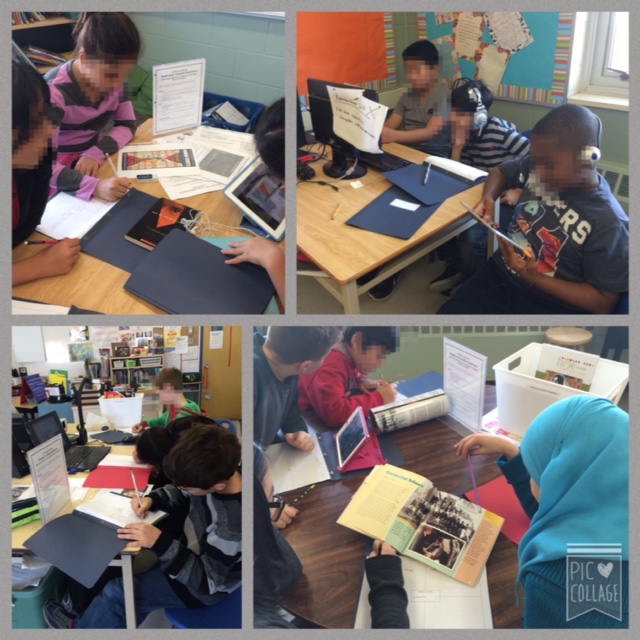
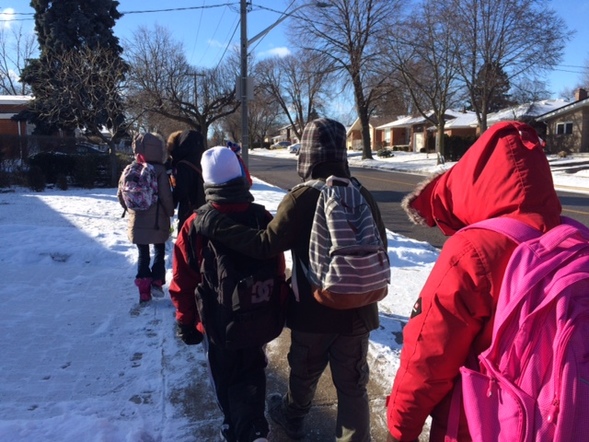
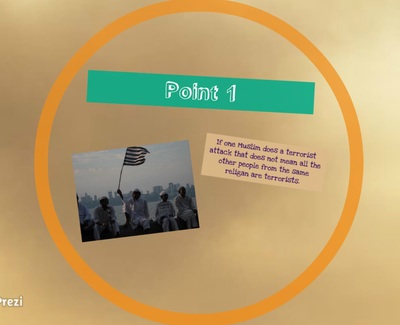
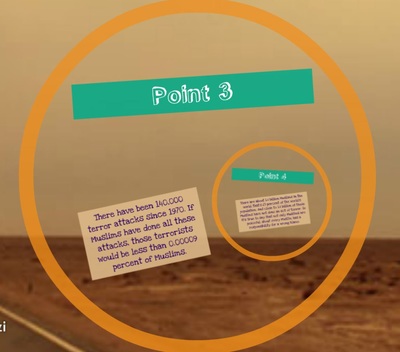
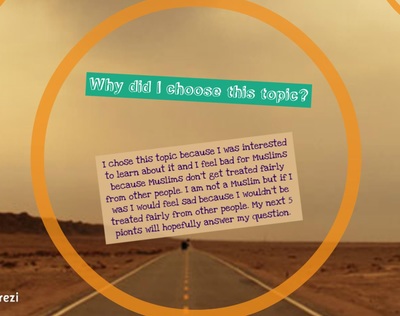
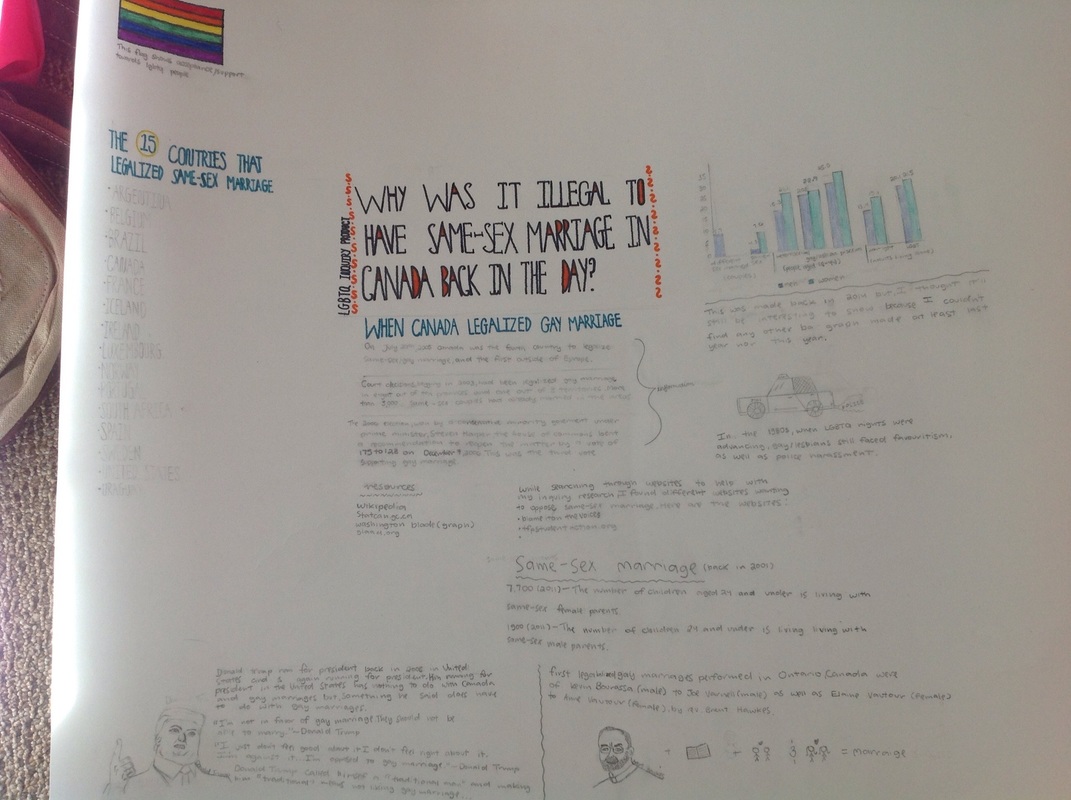
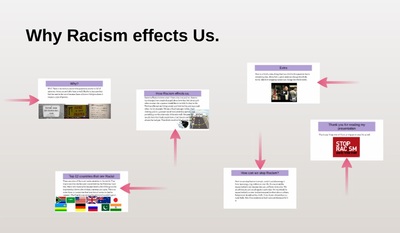
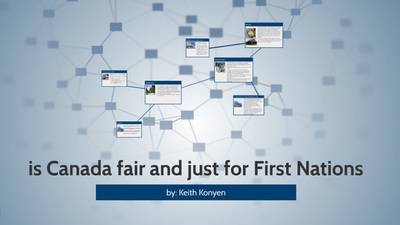
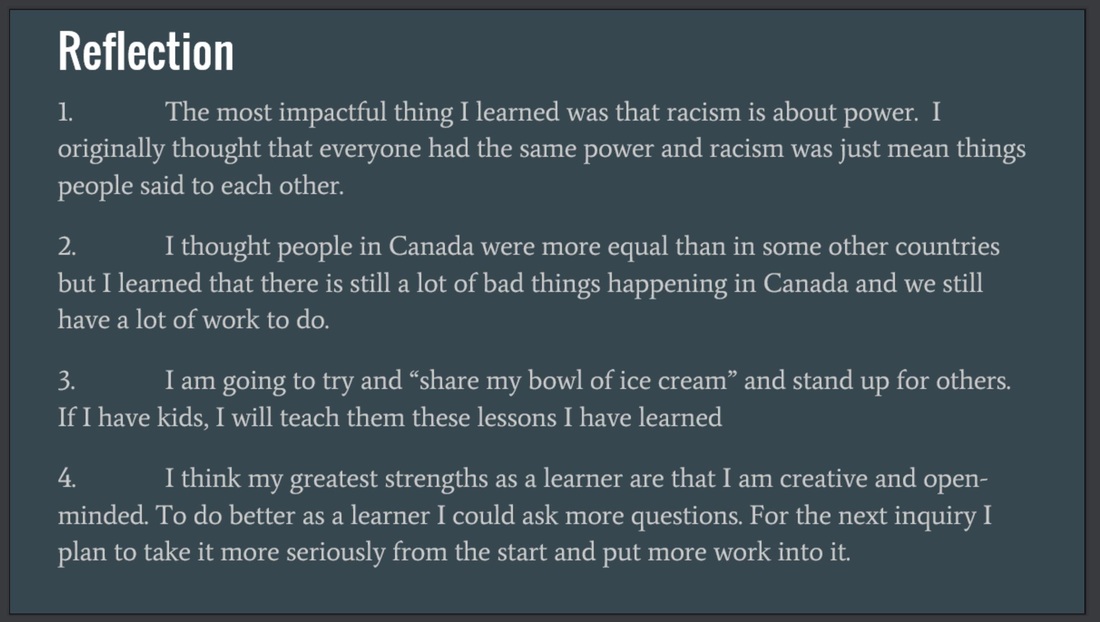


 RSS Feed
RSS Feed